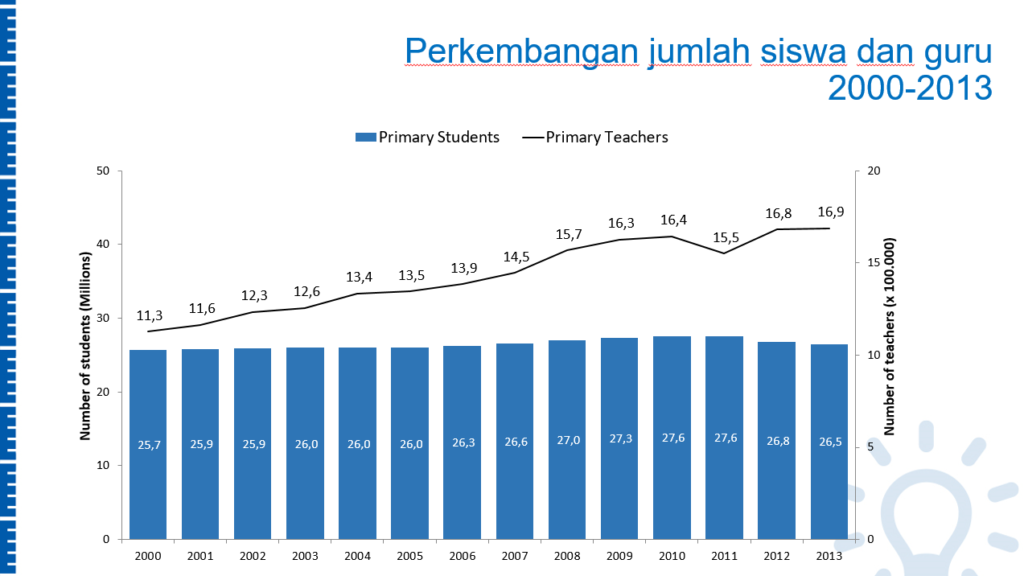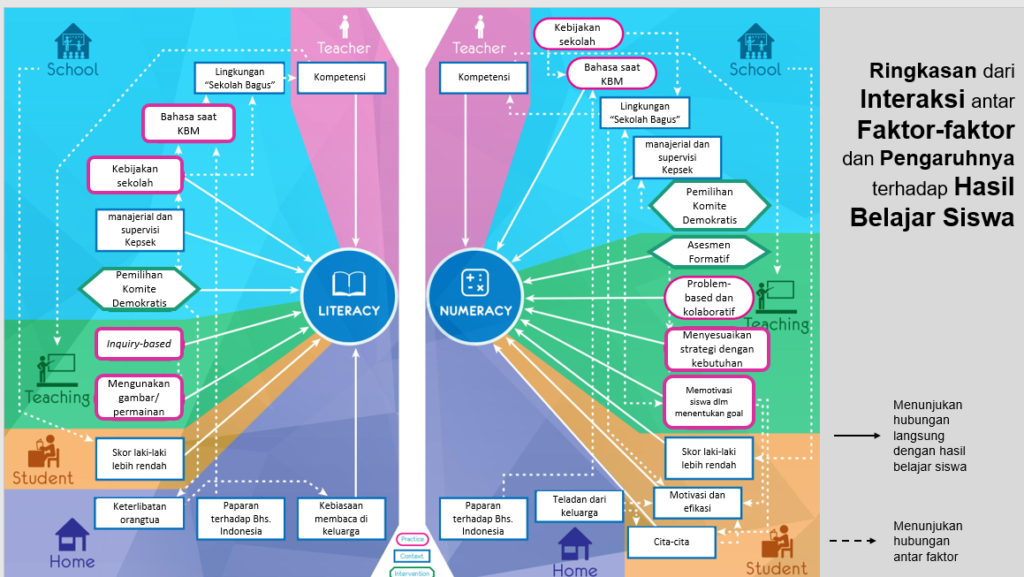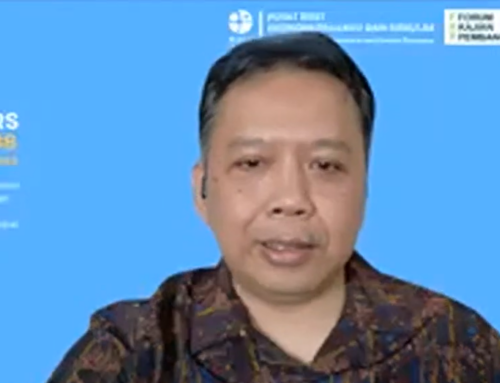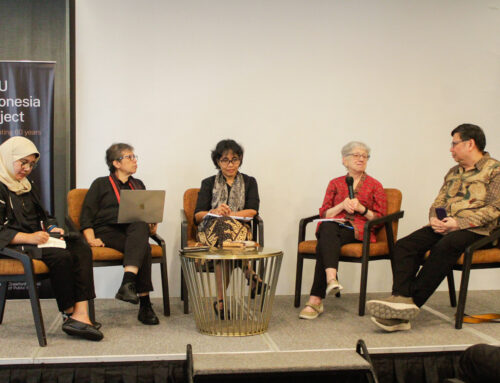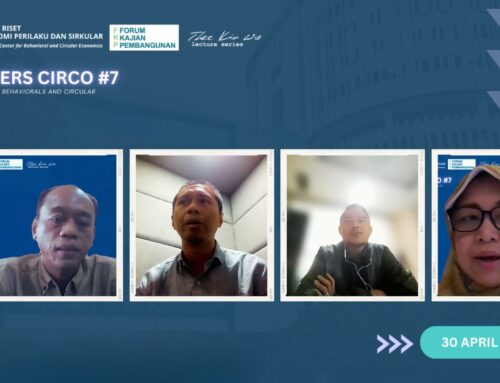The last FKP seminar series in November was again hosted by The Innovation for Indonesia’s School Children (INOVASI) on 28 November 2017. Unlike presentations in the previous week which focused on field case studies in two targeted provinces, this session discussed results of desk studies. Aos Santosa Hadiwijaya and Niken Rarasati (INOVASI) separately presented their findings about the effectiveness of teacher deployment practice in Indonesia and literacy-numeracy outcomes, respectively.
Aos Santosa, along with Mark Heyward, did a mixed-method study entitled “Reforming Teacher Deployment in Indonesia” in accordance to USAID PRIORITAS program, which also engages in education sector. The research studied teacher distribution at primary (Sekolah Dasar, SD) and secondary level (Sekolah Menengah Pertama, SMP) as the number of students studying in SD and SMP is accounted for 26.5 million, or roughly more than 10% of the total population. This, also, topic has become a pressing issue, since the teacher distribution in Indonesia is still uneven amongst schools in spite of the relatively small teacher-to-student ratio compared to other countries in the world (1:16 for SD and 1:23 for SMP). Aos argued that teacher deployment issue should be analyzed using three approaches: technical, political, and cultural approaches.
From the analysis, uneven teacher distribution is also linked to the large number of small study group (rombongan belajar, rombel), which is a group or a class consisting of 10-19 students, that may explain the rationale of lesser number of teachers in many rural schools. To tackle the issue, Aos suggested several things to the government, two of which are to merge small study groups or schools and implement mobile teacher to fill in the resource scarcity in other schools.
The second study presented was by Rarasati (also from INOVASI) about results of a systematic review on the interventions, practices, and contextual factors related to the literacy and numeracy outcomes in Indonesia. Although her team initially selected 120 studies about Indonesian education to be reviewed, after a more thorough review process, there were only 9 studies with 21 findings qualified to be included in meta-analysis stage. Interventions in those studies are divided into 5 types based on the target or source of action: teaching practice, teacher, student, school, and family.
Literacy and numeracy outcomes were studied independently. Consistent with observation presented in the previous FKP seminar hosted by INOVASI, headmaster supervision and managerial skills has large effect on numeracy outcomes, while the usage of multi-censored media takes larger effect on literacy outcomes, and family supports on both outcomes. In regards of teaching practice, inquiry-based and problem-based learning are shown to be effective in capturing student’s interest in the topic being studied in the class. Students apparently also need motivations from their surrounding to improve their numeracy skills. In closing, Rarasati stated that this study also showed that the number of properly-conducted education research in Indonesia was still extremely low, thus the result of this systematic review needs to be interpreted carefully.
